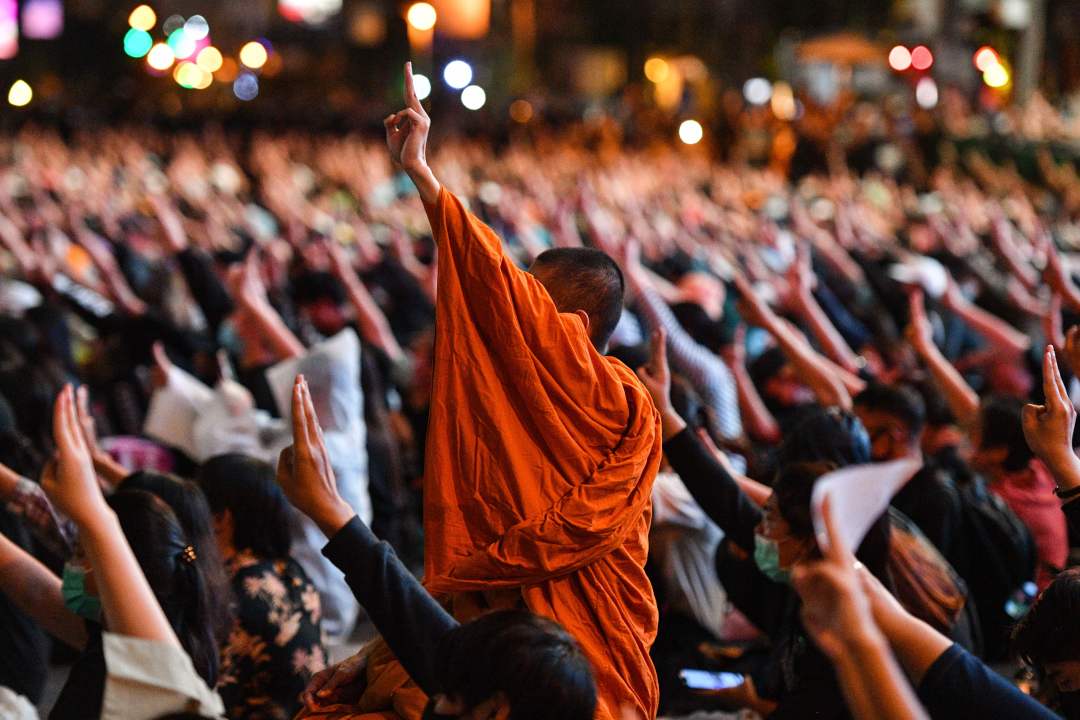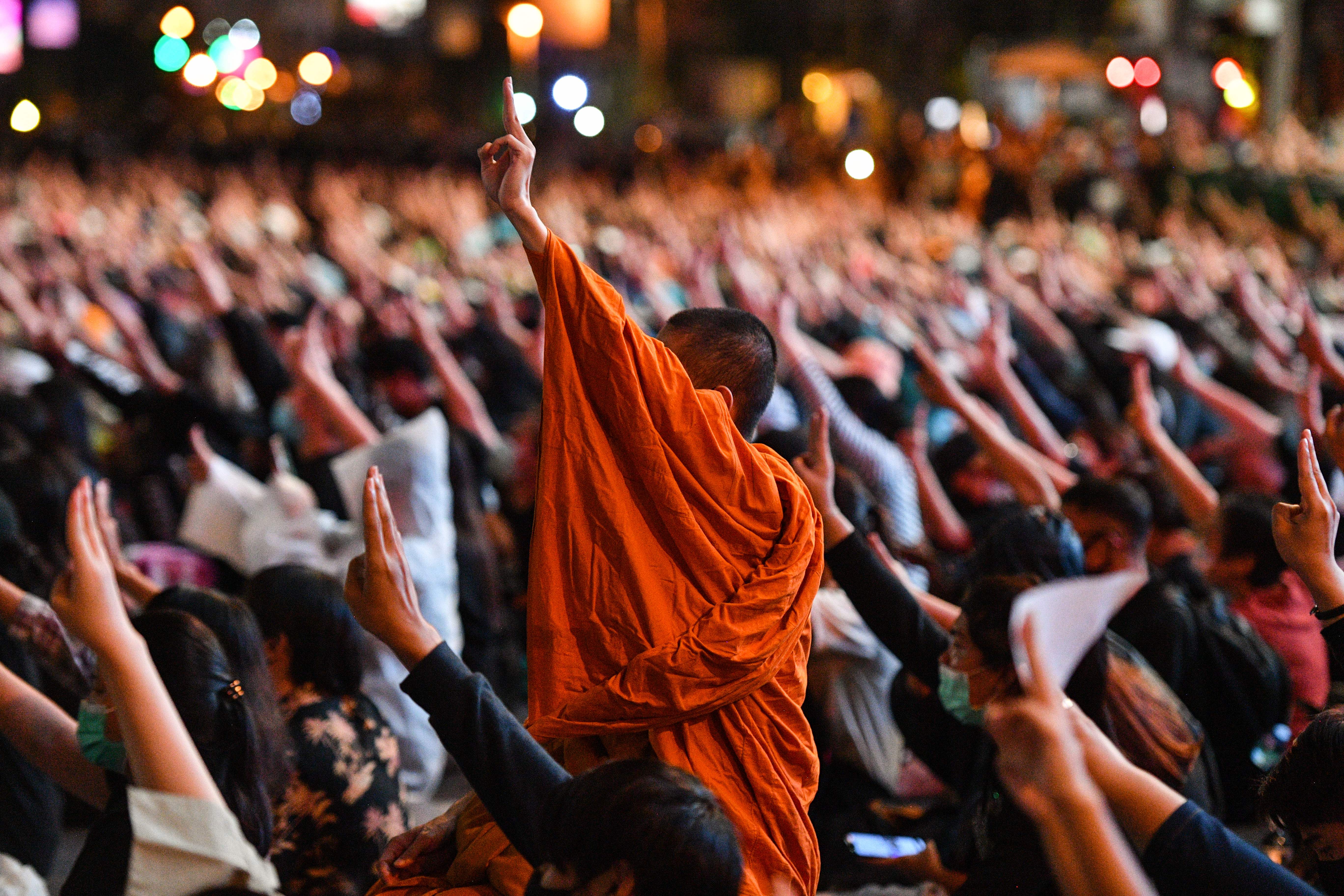Three years ago I sat down to write a novel set in my adopted home city. Placing its claustrophobic action in the near future, I had no trouble imagining my mostly foreign characters haplessly trapped inside a decaying high-rise apartment complex and surrounded by political upheaval. Thailand has endured more military coups since 1945 than any nation on Earth, and I myself have lived through two, in 2006 and 2014, while the violent uprising of 2010 occurred while I was far away in New York. They are peculiar coups by world standards. Two Turkish friends who visited in 2014 were disgusted by the lack of tear gas and fatalities inflicted by air power. ‘You call this a coup?’ they asked. True, there was a lot of bad dancing in the streets, and because the protestors were pro-establishment the police were nowhere to be seen. Nevertheless, violence flows under the surface in Bangkok. And often well above it. Unresolved conflicts swirl around the country’s institutions.
My characters (living in my actual building) peered out of windows and heard distant detonations, lone rifle shots, sirens, cries along darkened streets. Those too had been easily remembered. In 2014, a bomb tossed into ex-prime minister Abhisit Vejjajiva’s compound, next to which I happen to live, buckled my windows while I was sitting on the balcony enjoying my evening G&T. No one killed, thankfully, but foreign writer rattled. But what’s a grenade or two between neighbours? All the same, when The Glass Kingdom was finally published this year, the future events cryptically evoked in my novel began to actually transpire. Your correspondent is no prophet, however. The events now unfolding were all too easy to predict. Since the military seized power six years ago strange moods have simmered under a severe regime of censorship and intimidation. Public political gatherings were banned, dissent repressed. But there comes a moment when, for some inexplicable reason, people lose their fear, and it was students who first did so.
The first night of the mass protests, I rode by motorbike down to Asoke and joined a huge crowd gathered by the overhead Skytrain and the portals of the Soi Cowboy ‘entertainment venue’. The mood was electric, slightly venomous, the mostly young protestors raising their hands in the three-fingered salute from The Hunger Games. We are all now residents, it seems, of District 12 saluting the departure of Katniss Everdeen. Here, of course, the salute is a gesture of defiance to the authorities, flashed by tens of thousands as constantly as the nights are turned into a blaze of ‘fireflies’ by uplifted phone torches. I saw an English sign that was soon to become more common: ‘I hear too.’ It’s a rendering of the obscene Thai phrase ai hia Tu. Tu is a nickname for Prayuth Chan-ocha, the Prime Minister and military leader, and hia – literally ‘water monitor lizard’ – is an epithet applied to people we hate. This would have been unthinkable three months ago.
On my way home I passed through the near-deserted campus of Srinakharinwirot University and came across a strange spectacle. By the playing field there was a counter-demo of some kind, with a stage, a man singing out of tune into a Bluetooth mic and a sign that read mysteriously: ‘Yes We Can.’ Six female students sat on folding chairs in their navy shirts, peering into their glowing phones. What did it mean? A few stray dogs chased me home, as they always do.
A few days later I sailed up the Chao Praya with some friends on a private charter boat to the former royal capital of Ayutthaya. Destroyed by the Burmese in 1767, the archaeological park is now a Unesco site. With tourists banished by Covid, the ruined prangs and red brick chedis immolated by the long-forgotten invaders feel more than usually melancholy and ghostly. We moored at night near the Bang Pa-In or Summer Palace, next to an old royal temple — Wat Niwet Thammaprawat — built by King Rama V in a bizarrely Portuguese style complete with a Gothic altarpiece occupied by polished gold Buddhas instead of Christian saints. Monks winched us across the river on ancient cable cars and then appeared silently in the middle of the night massed along the quays for reasons unexplained. The old, quietly disappearing Thailand, its lovely former capital marinated in the symbolism of an increasingly contentious monarchy. The current capital, in any case, felt improbably distant. During dinner on deck one night, however, an extraordinary comet flashed across the sky, lighting up the whole horizon like green lightning, and the monks standing in the dark a few feet from us let out a low moan of wonderment. In former centuries it would have been a sign of approaching turmoil.
Sailing back into the city on the following Wednesday, there was an exhilarating anxiety in the air. We docked at six and in the taxi home I was able to hear the Prime Minister’s urgent address to the nation on the radio. Talk of backing down, reconciliation, the unacceptability of attacks on policemen with metal bars — if I understood that correctly. A few kids on motorcycles whipped past us as we stagnated in chaotic traffic and thousands of students marched on Government House. They flashed the Hunger Games sign at us through the windows and the driver scowled. To revolution or not to revolution, that is the question. At home I took the customary G&T on to the balcony and peered down at the Abhisit mansion. All the lights were off now and all one could hear was a distant honking of car horns and a few cries of ‘I hear too’. No grenades that night either.







Comments